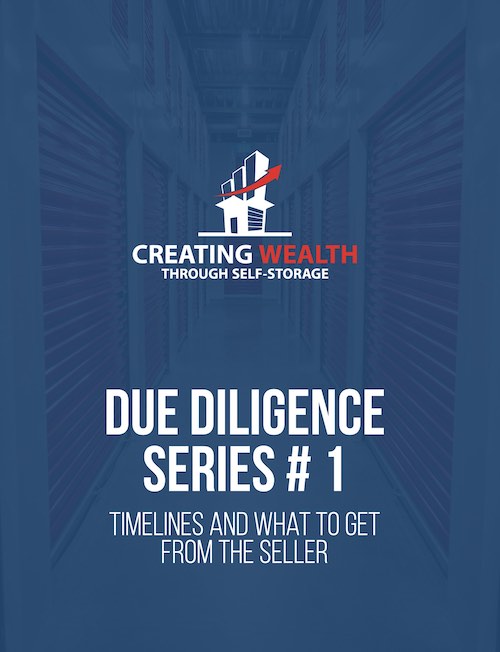Let’s talk again about algorithmic self-storage pricing strategies used by many in the industry today.
I also want to share a warning about pricing strategies in the aftermath of some natural disasters like Hurricane Milton or the most recent hurricane, Helene.
As the climate changes, and it is changing, these types of large storm events not only affect coastal areas but are going to have real impacts on parts of the country far away from the coast as Helene did.
Let’s start with algorithmic pricing strategies.
I have been harping for a couple of years about this pricing strategy. I won’t go into it again here (I can hear a sigh of relief from many), but I have been saying that if the extremely bizarre pricing is not managed responsibly by the owners and the industry itself, regulations will occur, much like what happened with late fees in the self-storage.
Here is an example.
I rent units in various markets to actually see what happens. In one market, I have had a 10 x 10 for almost two years.
Below is a screenshot of the facility where I am currently working.

By the way, I’m on the third floor.
If underwriting a deal in this market, I would assume that 10 x 10s in this facility are in the $140 range.
I am currently paying $180.
I am just waiting to see how high it will go before I end this pricing abuse.
I may have a partner rent the same unit for $79, cancel my current unit, and watch and see if the pricing goes up even faster this time.
Anyway, my guess is that what would happen is complaints would happen, and state-by-state regulations would be imposed, like I am going to talk about in the last part of this episode on pricing during natural disasters.
I was surprised, but not shocked when a member of the Inner Circle (a group I am a member of and you can be too ~click here), posted an article about the DOJ on a national level filing a suit against Real Pages, the company behind much of the algorithmic pricing strategies used by self-storage owners {article here}.
Basically, the argument from what I can see, is the DOJ saying that Real Pages, by having access to the occupancy rates and pricing structure of so many facilities and offering what the best pricing at any given moment could be based on the data, is a de facto method of price fixing.
Seems like a stretch to me to use anti-trust laws to attach this problem on a national level. But I am not a lawyer.
But I bet in many states now, complaints are rolling in to the Attorney General of those states about the excessive price hikes many, like the example above, of our customers are experiencing.
After X number of complaints occur, certain states may start to take action.
Like the many states have around natural disasters.
For example, in Kentucky, it’s illegal to raise prices by more than 10% compared to the price before the emergency was declared. Offenders can face a fine of up to $25,000 per violation.
What if I didn’t know this, had an algorithmic self-storage pricing strategy in place, and as units rented up fast after a tornado or hurricane issue like North Carolina just experienced from a Florida landfall hurricane, my prices for 10 x 10’s jumped: I could be in some hot water.
Other examples:
- North Carolina, effective Sept 25 – it’s unlawful to “rent or sell or offer to rent or sell a commodity (self-storage is considered a commodity) at an unconscionable price.” Violators face a fine of up to $1,000 per violation, according to attorney general Alan Wilson. It is in place for 15 days after a disaster is declared.
- The Anti-Price Gouging Act in Virginia prevents sellers from imposing “unconscionable prices” on essential goods and services for 30 days following the declaration of an SOE. The current SOE was declared on Sept 25 and remains in effect for 45 days according to Inside Self Storage news.
South Carolina, Tennessee, Georgia, and Florida all have similar types of laws. And all of these are considered “Red” states (where laws are less consumer-oriented).
Imagine how much fun an Attorney General could have in a less Red state where an algorithmic self-storage pricing strategy kicks up unit pricing fast based on supply and demand after a Governor has declared the state a disaster area.
So, my coaching is if you use an algorithmic self-storage pricing strategy, keep up with new laws and regulations in your state, and follow what is happening on a national level.
In my opinion, this pricing strategy has the real possibility of turning much of our customer base against us as an industry, and this could have long-term effects on demand.
In the past, and will continue to use in the future, I have used the fact that I don’t price this way in my marketing. It has been very effective in some trade areas and allows me to pull customers from facilities that utilize it.
A company may feel that their customers are “sticky” once they move in, and raising the rent as much as they want is a good strategy. Customers don’t want to move out, and that is true.
But I will hire a crew and move them out and over to our facility, and lock in their rent for six months or a year, depending on where the project is.
My biggest concern is the fact that this type of algorithmic self-storage pricing strategy will eventually create regulations around our pricing, and none of us want to be in a more regulated environment for our business.
So, just pay attention to what is going on around your pricing strategies and know current state regulations.
We will see what happens in the future around regulations and algorithmic self-storage pricing strategies.



